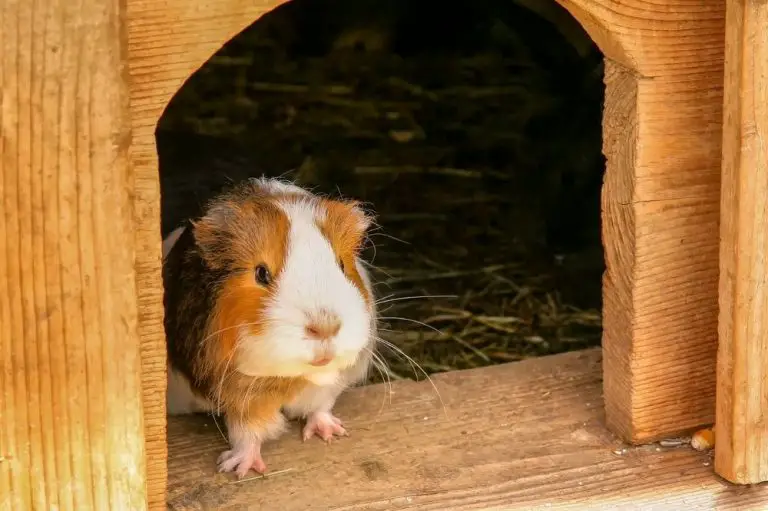Can Guinea Pigs Eat Kale?
As a superfood, kale is considered one of the most nutritious vegetables due to the high amounts of vitamins and minerals that it contains.
In addition to this, the vegetable is leafy and also has a dark green color that guinea pigs find attractive.
But does that mean that your guinea pig can eat kale? If it were up to your cavy to choose what he/she eats, your pet would probably eat anything and everything.
However, that would cause serious health complications that may result in death. The good news is that you can avoid this by feeding your guinea pig the right foods.
Plus, we are always here to help you in case you are having a hard time deciding whether certain foods are good for your guinea pig or not.
When it comes to kale, there are several things that you need to know about the vegetable but let us start by answering the main question.
Can Guinea Pigs Eat Kale?
Guinea pigs can safely eat kale occasionally and in moderate amounts. Kale contains powerful antioxidants, vitamin K, vitamin A, vitamin C, iron, and other important nutritional compounds that can help prevent various health complications in guinea pigs. The vegetable also has high fiber content, making it super nutritious.
However, kale contains phosphorus, calcium, and trace amounts of oxalates, so it may harm your guinea pig if you serve it in excessive amounts.
When calcium mixes with oxalate acid, the two compounds form solid residues that may cause bladder stones in guinea pigs, so it best that you feed your piggy kale once in a while.
On the other hand, potassium may cause other serious health complications that will affect the overall well-being of your pet.
Excessive consumption of kale can also cause digestive problems and diarrhea in cavies. This is because guinea pigs have a sensitive digestive system that can easily be affected by anything that is not hay.
Kale also contains a lot of sodium, so it may increase thirst in cavies.
Nutritional Benefits of Feeding Guinea Pigs Kale
The good thing about kale is that its nutritional advantages outweigh the disadvantages. As such, it will provide your cavy with tons of benefits as long as you serve it moderately.
With the help of potent nutrients such as vitamin C, your guinea pig will have all the protection that he/she needs to fight scurvy and other skin diseases that affect piggies.
Vitamin C is very essential for guinea pigs, but the only problem is that cavies lack the capacity to synthesize this nutrient.
Additionally, kale is loaded with vitamin A, which is known for its antioxidant properties. Aside from that, this vitamin is an immunity booster, so your pet will be less likely to fall sick.
That is not all; this fat-soluble vitamin also keeps the lungs, heart, kidney, and other important organs healthy. It will ensure that everything is working as it should, thereby preventing organ failure.
The vitamin B6 in kale boosts organ function and also performs other roles in the guinea pig’s body, thus promoting healthy growth and development.
Thanks to its high fiber content, kale can improve digestion and will also keep the gut flora healthy.
The other nutrient that is worth mentioning is vitamin K, which is also another powerful compound that is required in blood coagulation.
It promotes faster healing of wounds, meaning that your guinea pig won’t get infections from insect bites or injuries.
Vitamin K also aids in bone metabolism, so your guinea pig will develop bones that are not only healthy but also strong.
How much Kale Should a Guinea Pig Eat?
As mentioned before, kale is packed with lots of calcium, so you should only serve it once in a while and with moderation.
This means that you need to serve small portions in each feeding session, and the servings should only be administered a few times a week.
That said, you should feed your guinea pig one or two kale leaves to lower their chances of getting bladder stones and gastrointestinal complications.
This can be done two to three times a week depending on the types of food that are in the guinea pig’s diet.
As a safety precaution, kale should not be served with other calcium-rich foods since this may predispose the cavy to some of the health problems that we listed earlier.
Can I feed my Guinea Pig Kale Stalks?
Kale stalks contain more fiber than the leaves and are also nutritious, so guinea pigs can eat them.
Nevertheless, they should also be served in moderation because too much fiber in a guinea pig’s diet can cause problems in the digestive system.
Raw or cooked, how should I serve Kale to my Guinea Pigs?
It is not advisable to cook your guinea pig’s food. This is because when foods such as vegetables are exposed to heat, they tend to lose some of the nutrients.
Additionally, cooked food may cause diarrhea and other digestive complications. As such, guinea pigs should only be given raw kale.
You should also consider washing the vegetable before serving it to your cavy.
Washing is essential because leafy plants like kale may harbor herbicides and other agricultural chemicals that may cause harm to your furry friend.
Can I feed Guinea Pigs Frozen Kale?
You should not feed your guinea pig food that is extremely cold because it may cause diarrhea. Frozen kale should, therefore, be thawed before serving it to cavies.
Final Thoughts
Kale is very nutritious and good for your guinea pig, but it also has its drawbacks.
Nonetheless, if you feed your guinea pig this vegetable in small amounts, you won’t have to worry about any of the health complications that we have covered.
Besides, kale is low in fat, so it won’t cause the guinea pig’s blood vessels to clog. Additionally, kale contains potent antioxidants such as lutein and zeaxanthin, both of which are effective against free radicals.
If you want your cavy to enjoy the health benefits that kale has to offer, ensure that you serve the vegetable moderately.
- Can Guinea Pigs Eat Lawn Grass? Find out now!
- Can Guinea Pigs Eat Wet Grass? Find out now!
- Can Guinea Pigs Eat Weeds? Explained
- Can Guinea Pigs Eat Watermelon? (Benefits & Risks)
- Can Guinea Pigs Eat Strawberries? [Feeding Guide!]

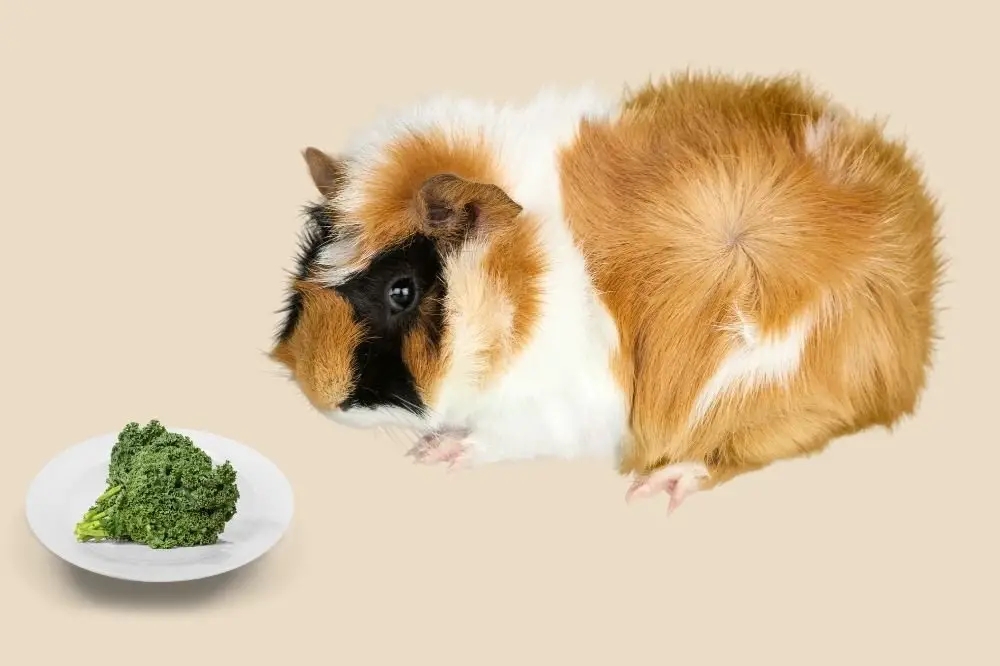
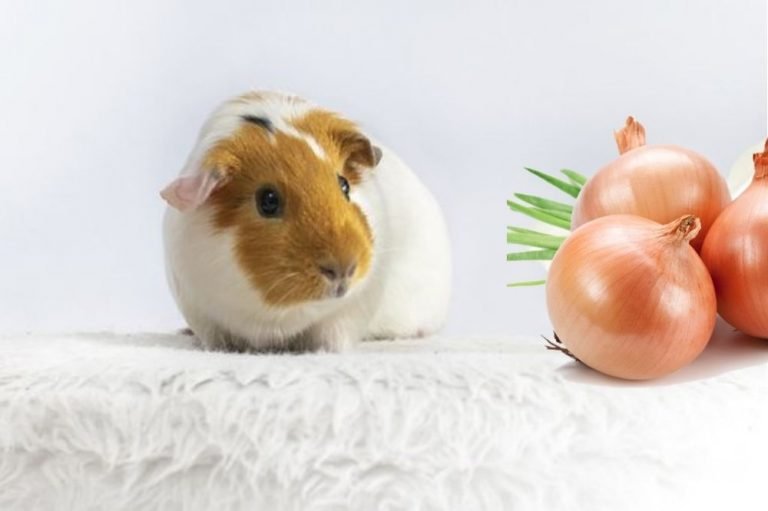
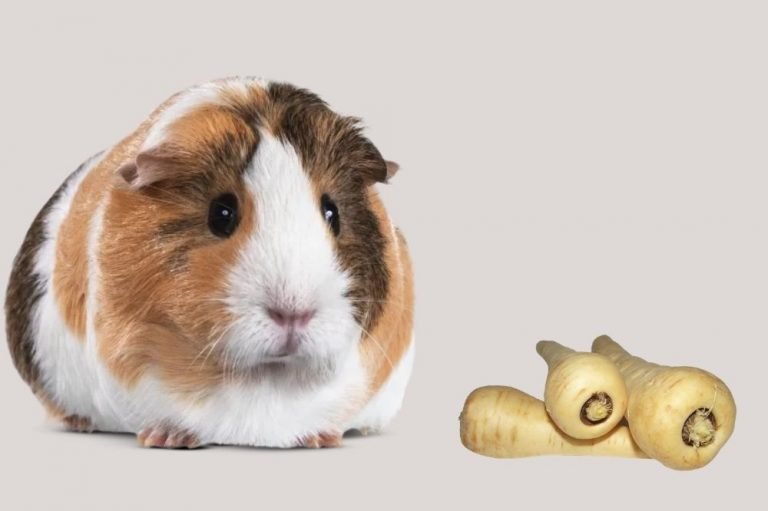
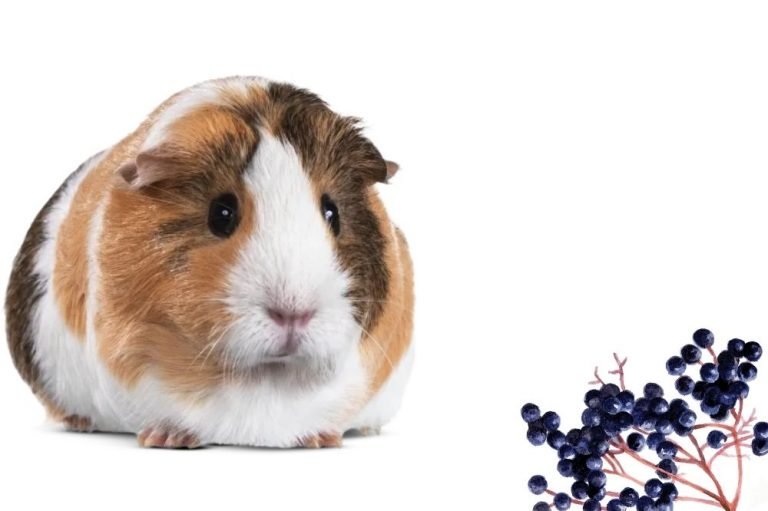
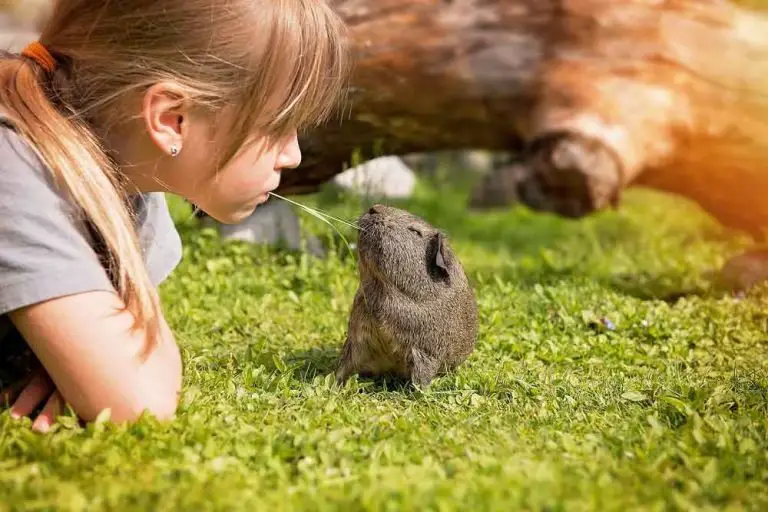
![Do Guinea Pigs Blink? [Signs & Treatments of Eye Infections]](https://atractivopets.com/wp-content/uploads/2020/10/Guinea-Pigs-Blink-768x511.jpg)
